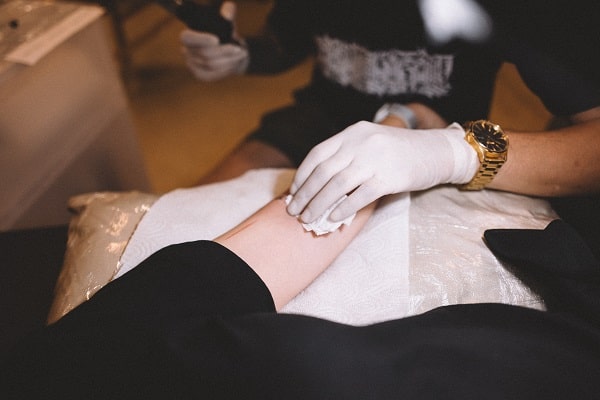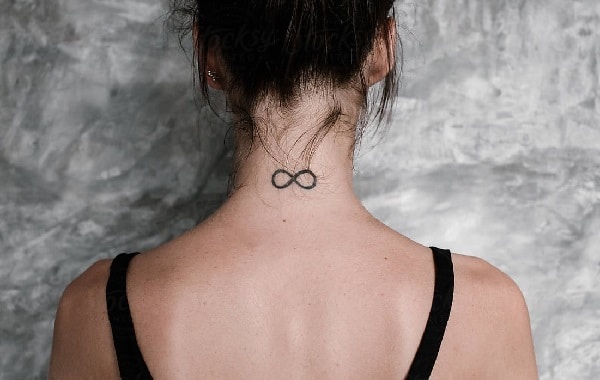Tattoos can be a beautiful form of self-expression, an indelible mark of one’s identity and personal journey. Yet, they can also be a source of regret for some individuals. This art form is a permanent decision that can sometimes be made impulsively, leading to remorse later in life. This article will focus on some common designs of tattoos females regret getting. The aim is not to discourage the art of tattooing but to educate and highlight the importance of thoughtful consideration before marking your body permanently.
Contents
Impulsive Youthful Decisions

The carefree period of youth often sparks the urge for self-expression and rebellion, often leading to impulsive decisions like getting a tattoo. Many women recall getting a tattoo in their teenage years or early twenties, which they later regretted. These tattoos could range from the names of youthful love interests, daringly inked in the thrill of the moment, to symbols that had a certain allure at that age.
Most times, these tattoos become a relic of the past that no longer aligns with their evolved self. The once-meaningful symbol might have lost its significance, or the romance could have faded, making the tattoo a painful reminder. In some instances, the aesthetics of these tattoos might also be questionable, given the likelihood of a lower budget and less forethought in the selection of a tattoo artist during younger years. Next, you will get a look at some of the more commonly regretted tattoos women have gotten.
Wrong Interpretation And Translation Errors

One category of tattoos that often brings about a sense of regret is those involving foreign languages or symbols. The allure of adorning one’s body with a script or character from another culture can be strong. However, without proper research or consultation, these tattoos can often be incorrect or misinterpreted, leading to embarrassment.
For instance, a phrase in a foreign language may be incorrectly translated, or the symbol may not mean what the bearer believed it to be. There are countless stories of people who thought they were getting a tattoo that read “peace” or “strength” in a foreign language, only to find out it translated to something completely different or nonsensical. It’s an error that can convert a piece of art into a permanent source of regret.
Low-Quality Tattoos

The artistry and skill of the tattoo artist play a significant role in the final outcome of the tattoo. Some tattoos, unfortunately, turn out to be low-quality, causing a sense of regret and disappointment. The lines may be uneven, the shading might be poorly done, or the overall design might not match the original vision.
This regret can often be a result of rushing into the decision without proper research into the tattoo artist’s skill and reputation. While a high price doesn’t necessarily guarantee quality, the cheapest options can often lead to subpar results. The old saying “You get what you pay for” often rings true in the realm of tattoos, leading many to regret not investing more time and money into this permanent piece of body art.
Oversized And Overly Visible

A tattoo’s size and location can significantly influence how a person feels about it over time. Larger, more visible tattoos can seem exciting and daring initially, but they can also lead to a significant amount of regret. A full arm sleeve or a large back piece might seem like a good idea at the moment, but as time passes, these tattoos might not align with a person’s evolved lifestyle, professional aspirations, or personal style.
Additionally, larger tattoos can also become a conversation piece that the person might not be comfortable with. They can attract unwanted attention and questions, making the individual feel like they’re constantly under scrutiny. Highly visible tattoos can also limit career opportunities in certain professional fields, leading many to regret not opting for a more discreet design.
Fading Trends

There are always certain tattoo designs or styles that become trendy for a time. From tribal patterns in the 90s to infinity symbols in the 2010s, these designs often become overdone and subsequently lose their appeal. Many women find themselves regretting these trendy tattoos once the trend has passed, left with a dated design permanently inked on their skin.
Moreover, trendy tattoos often lack personal significance. They’re chosen for their popularity rather than because they hold a deep meaning to the person. As time passes and trends change, these tattoos can feel out of place or irrelevant, resulting in regret and, in some cases, the desire for cover-ups or removal.
Tattoos With Negative Associations

Tattoos are often linked with specific periods, people, or events in your life. While this can be a beautiful way to memorialize positive experiences, it can become a source of regret when the tattoo is associated with a negative period or person. A design that reminds the bearer of a toxic relationship or a difficult time can become a constant source of discomfort.
Moreover, the emotional burden these tattoos carry can outweigh their aesthetic appeal, leading many women to wish they hadn’t gotten them in the first place. It’s an unfortunate reminder that while your memories fade over time, tattoos remain stark and vivid, potentially dredging up past emotions and experiences you’d rather forget.
Ill-Advised Face and Neck Tattoos

Face and neck tattoos occupy a unique place in the world of body art. Despite the growing societal acceptance of tattoos in general, these placements remain controversial and can bring about significant regret. They are nearly always visible, dramatically influencing a person’s appearance and how they are perceived by others. Such tattoos can also present professional challenges, as many workplaces still maintain conservative standards regarding visible tattoos.
Additionally, facial tattoos can drastically change a person’s appearance, and as time passes, one’s perception of beauty and self-image can change, leading to regret. In some cases, the decision to get a face or neck tattoo can be made without fully considering the long-term implications, making it one of the categories most frequently associated with tattoo regret.
Misrepresentative Tattoos

Tattoos can be seen as a reflection of the self, a personal identity portrayed in ink. However, as you evolve and grow, certain aspects of your identity might shift, rendering some tattoos as misrepresentative. This misalignment can be a significant source of regret for many women. They might have gotten a tattoo that represented a belief, interest, or lifestyle that they no longer subscribe to, causing a disconnect every time they look at the tattoo.
The mismatch between a tattoo and the current self can be particularly impactful when it involves significant ideological changes. For instance, a person who got a tattoo symbolizing a particular political belief or spiritual ideology might deeply regret it if they’ve moved away from those ideologies. These tattoos stand as a stark reminder of a past self, causing discomfort and prompting a desire for change or removal.
Lessons Learned From Tattoos Females Regret Getting
Tattoos can be an immensely powerful and personal form of expression, a testament to a person’s journey, beliefs, and aesthetic preferences. However, as explored in this article, there are some tattoos females regret getting. Be it impulsive youthful decisions, misinterpretations, low-quality work, oversized pieces, trend-following, negative associations, visible facial tattoos, or those that no longer align with one’s identity, these examples should serve as cautionary tales. The hope is that potential tattoo enthusiasts will give this permanent decision the careful thought and consideration it warrants, so they can enjoy their body art for years to come, free of regret.


